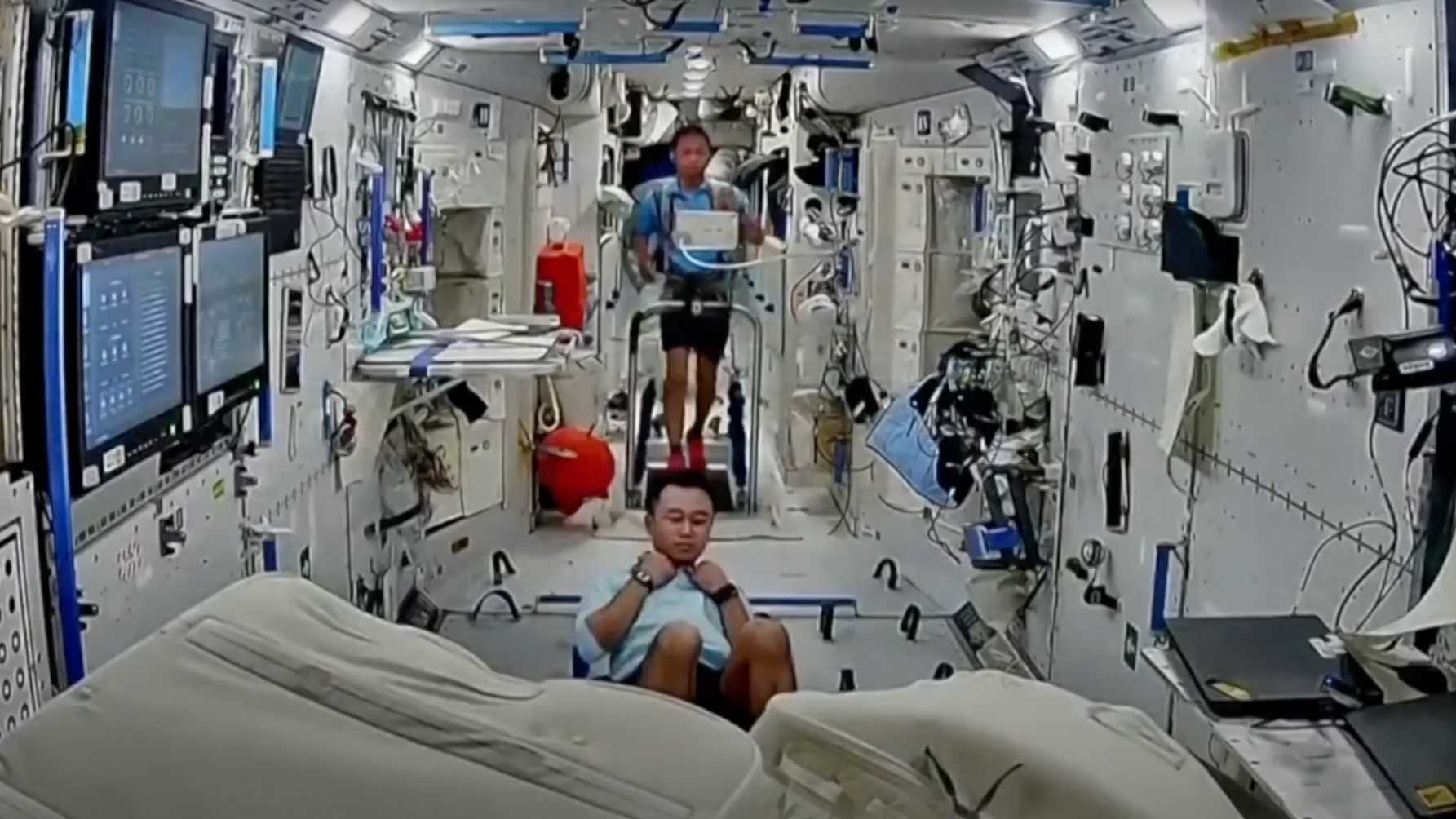
A Chinese space freighter has delivered human bone cells to the Tiangong space station for on-orbit research.
The Tianzhou 7 cargo spacecraft launched on a Long March 7 rocket from Wenchang Satellite Launch Center on Jan. 17, reaching the Tiangong space station just over three hours later. Among its cargo of around 12,350 pounds (5,600 kilograms) were more than 60 experiments, including human bone cells for research into bone mineral density.
The cells grow quickly, meaning the experiment needed to be installed just hours ahead of launch to ensure optimal cell activity before they fill the space available for them. Their growth will be closely monitored and data transmitted back to Earth for analysis.
Related: The latest news about China's space program

"Our experimental equipment in space will guarantee the physical and chemical conditions for cell culture like the replacement of nutrient fluid and the gas for bone cells,” Shang Peng, a professor at the Northwestern Polytechnical University, told CCTV.
“It also carries a fluorescence microscope and ordinary light microscope to monitor the growth of the cells. Some of this information will be recorded and transmitted to the Earth for analysis in real time and in the future."
Astronauts in orbit are instructed to exercise for hours each day to help prevent the bone loss associated with living long-term in a microgravity environment.
“This can exercise their skeletal muscles and also prevent their bone loss effectively," Shang said.
Such research, which is also being conducted cooperatively with scientists from other countries, could lead to better ways to tackle bone loss problems experienced on Earth as well as in space.
"We will do further projects in the operation phase of China's space station. Based on these, we will develop relevant medicines and test them. They will not only help taikonauts in space but also humans on the Earth, particularly the elderly. This will be very meaningful," said Wang Jinfu, professor with the Zhejiang University in east China.
China's Tianzhou 1 mission, launched in 2017 as a prototype space station cargo and refueling mission to dock with the Tiangong 1 space lab, carried stem cells. That was a rare opportunity for such tests.
Having the Tiangong space station in its operational phase — with the Tianhe core module recently passing 1,000 days in orbit — means more and regular opportunities for China's science community to carry out scientific experiments in space.







